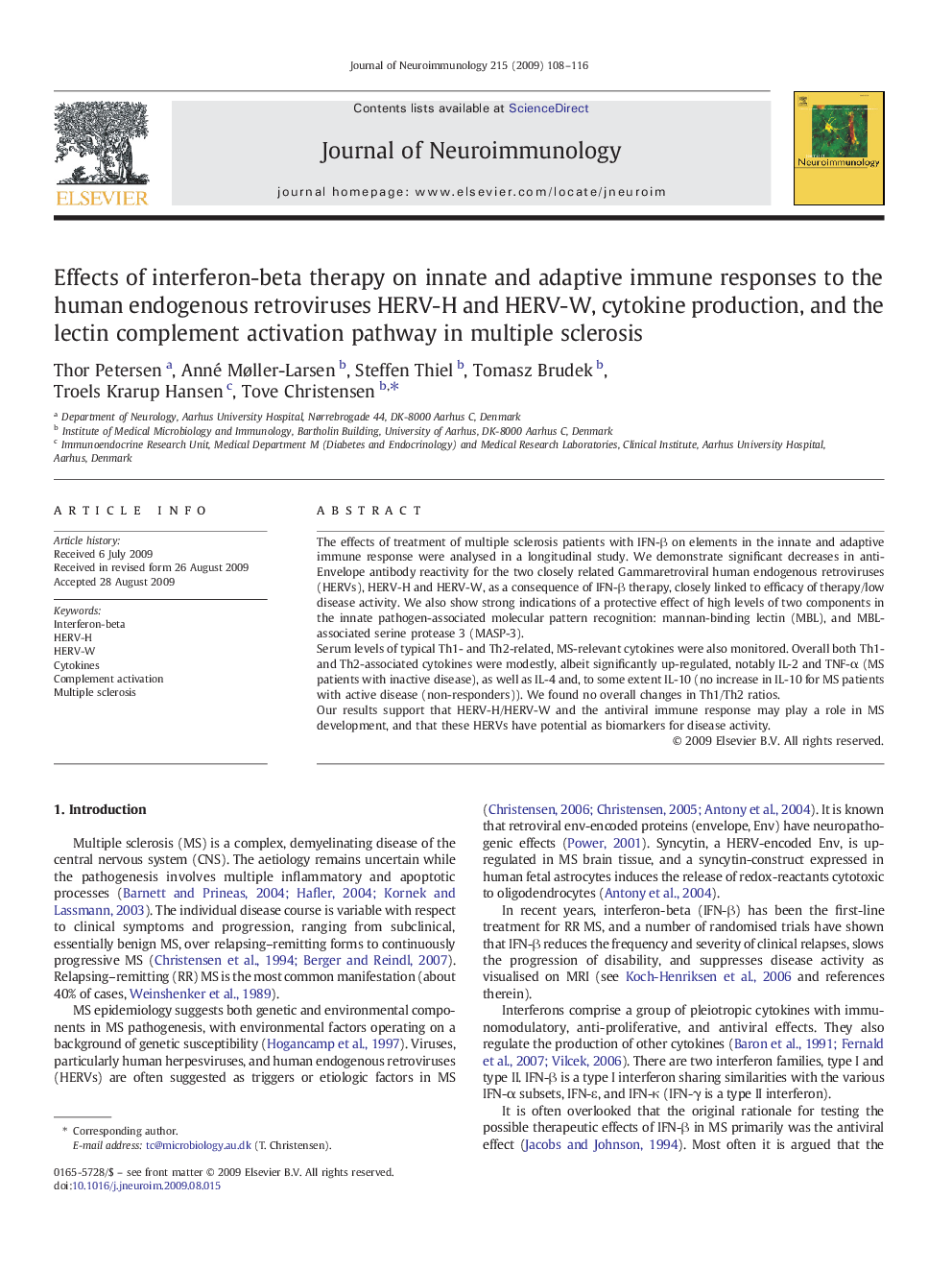| Article ID | Journal | Published Year | Pages | File Type |
|---|---|---|---|---|
| 3064860 | Journal of Neuroimmunology | 2009 | 9 Pages |
The effects of treatment of multiple sclerosis patients with IFN-β on elements in the innate and adaptive immune response were analysed in a longitudinal study. We demonstrate significant decreases in anti-Envelope antibody reactivity for the two closely related Gammaretroviral human endogenous retroviruses (HERVs), HERV-H and HERV-W, as a consequence of IFN-β therapy, closely linked to efficacy of therapy/low disease activity. We also show strong indications of a protective effect of high levels of two components in the innate pathogen-associated molecular pattern recognition: mannan-binding lectin (MBL), and MBL-associated serine protease 3 (MASP-3).Serum levels of typical Th1- and Th2-related, MS-relevant cytokines were also monitored. Overall both Th1- and Th2-associated cytokines were modestly, albeit significantly up-regulated, notably IL-2 and TNF-α (MS patients with inactive disease), as well as IL-4 and, to some extent IL-10 (no increase in IL-10 for MS patients with active disease (non-responders)). We found no overall changes in Th1/Th2 ratios.Our results support that HERV-H/HERV-W and the antiviral immune response may play a role in MS development, and that these HERVs have potential as biomarkers for disease activity.
